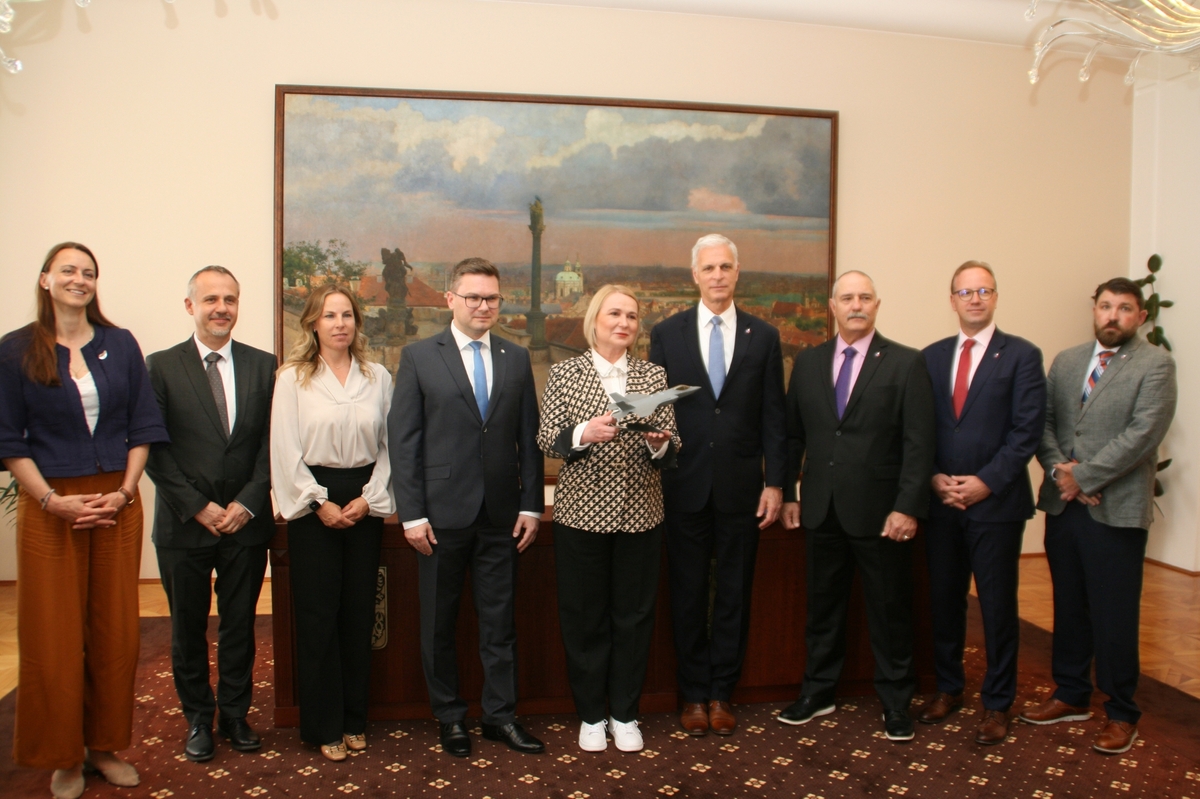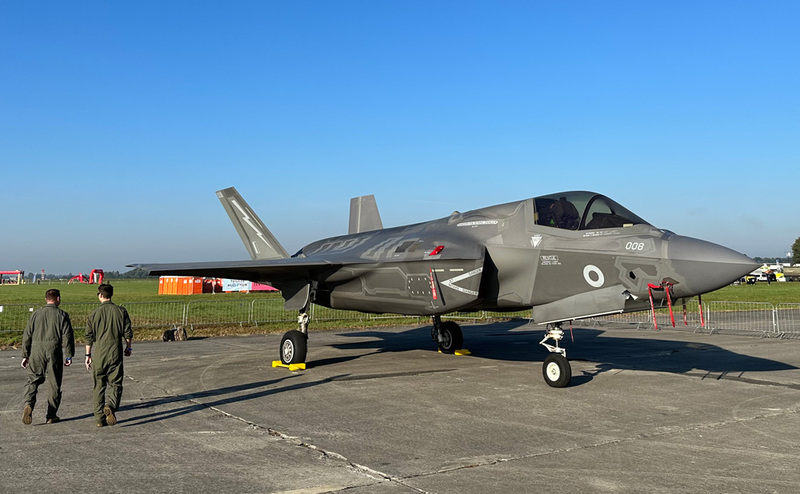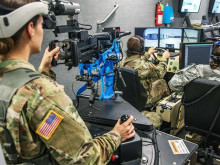Mutual benefit is a key factor in Lockheed Martin's successful relationship with representatives of the Czech defence industry
This year, Lockheed Martin is progressively fulfilling planned contract signings with representatives of the Czech defense industry who will participate in the production of the 5th generation F-35 Lightning II. In May this year, the first two specific agreements between Lockheed Martin and Czech industry have already been signed. Specifically, these were the state enterprise LOM PRAHA and the consortium of companies PBS Group a.s. Velká Bíteš, ONE3D and the HiLASE research centre of the Institute of Physics of the CAS.
On 21 May, Jiří Protiva, director of the state-owned company LOM PRAHA, was the first to sign a cooperation agreement with the American manufacturer of F-35 aircraft, and David Baker, senior director of F-35 Industrial Participation, signed the agreement on behalf of Lockheed Martin Aeronautics. On the same day, a ceremonial signing of a four-party contract with a consortium of Czech companies PBS Group a.s., HiLASE and ONE3D took place at the residence of Ambassador Bijan Sabet.

A total of 11 projects with Lockheed Martin and 3 projects with Pratt & Whitney have been prepared within the framework of mutual industrial cooperation regarding the modernisation of the supersonic tactical air force of the Air Force of the Czech Republic. 13 Czech companies and universities will participate in these projects. They will be involved in four areas: component production, research and development, pilot training and maintenance, and F-35 service and repair.
"The acquisition of the 5th generation aircraft represents a technological leap not only for the military but also for Czech industry. We announced earlier that we have managed to agree 14 industrial cooperation projects worth more than 15 billion crowns in the purchase of F-35 aircraft. The signing of the agreement thus represents the first step in this cooperation," said Defence Minister Jana Černochová after signing the contract with LOM PRAHA. The signing of further contracts is expected later this year depending on the results of specific negotiations between Lockheed Martin and the Czech side, i.e. Czech companies and universities.

In connection with the Czech-American cooperation on the F-35 project, we asked Lockheed Martin and Radka Konderlová, Senior Director of the Industrial Cooperation Section of the Ministry of Defence of the Czech Republic, the following questions:
What is the importance of Lockheed Martin's connection with Czech domestic industry? Is it mutually beneficial?
LM: Working with the Czech Republic's industrial base further diversifies Lockheed Martin's supply chain, allowing our programs to meet specific requirements and remain cost-effective. Mutual benefit, typically identified at the outset of a potential partnership, is a key factor in a successful relationship with industry.
Radka Konderlová: Although these are specific projects for cooperation between Lockheed Martin and Czech industry and universities, the projects go beyond the private sector horizon in terms of their importance. These industrial cooperation projects will not only ensure a strong link between the Czech Republic and the USA at the strategic-industrial level, but will also help to move the Czech entities involved to a significantly higher technological level and into a field with higher added value of labour. We always insist that the projects contribute to securing the essential security interests of the states, but also that they are sustainable in the long term and therefore beneficial for both parties.
In establishing these collaborations, have any entirely new possibilities for future cooperation emerged?
LM: Lockheed Martin is committed to delivering on our industrial development project agreements and we have dedicated teams that continuously review and assess multiple projects for partnership in various industries across the country.
Radka Konderlová: It is, of course, an expected side effect that the cooperation with Czech industry and the related mapping of Czech industry does not stop at the few industrial cooperation projects that the contractor has committed to, but naturally continues in other areas where Lockheed Martin is doing business. In the Industrial Cooperation Agreement we entered into with Lockheed Martin earlier this year, the company commits to seek further forms of cooperation with the Czech Republic, for example in the areas of space technology or cybersecurity. The Czech defence and aerospace industry is at a high technological level and is a very interesting partner for foreign companies like Lockheed Martin. We must also look at the potential of this cooperation from the point of view of the need to increase production capacity and the need to secure critical supply chains, for example, by diversifying suppliers. These are huge opportunities for the Czech industry with its long engineering tradition.
What does the process of selecting these partners look like and what is required to end up signing a contract?
LM: The selection of participants in industrial engagement projects is based on Lockheed Martin's needs and required capabilities.
Radka Konderlová: The Ministry of Defence only determines the areas of interest for cooperation between the foreign contractor and Czech industry that are necessary to ensure the essential security interests of the Czech Republic. The selection of specific entities for cooperation is the responsibility of the foreign contractor and the Ministry of Defence has no input into this process. Only the companies themselves can determine, on the basis of their own dialogue, whether or not they are technologically compatible for mutual cooperation.
















